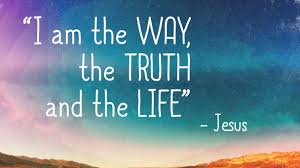The church still has a long way to go toward eradicating racism, according to a British Baptist leader.
By Bob Allen
Policy statements on racial inclusion aside, the church still has a long way to go toward eradicating racism in denominational structures, says a black Baptist leader in the United Kingdom.
David Shosanya, a regional minister and director with the London Baptist Association, said in a recent article in the black Pentecostal magazine Keep The Faith that as a black minister working in a white-led denomination, some might accuse him of airing dirty linen in public.
“I would simply draw their attention to the fact that such individuals are very comfortable reading the text of the New Testament without appropriating the same sentiment to Jesus, who also offers penetrating critiques of the culture and faith by which he was shaped and from which he emerged,” he wrote in the article republished by the Baptist Times.
Shosanya said critics of black leaders who speak out on issues of race in predominantly white denominations often don’t understand “the sense of dis-ease we sometimes feel as we seek to defend or explain the unhelpful decisions and actions of our denominations to ecumenical friends.”
While predominantly white denominations prefer to save face about their shortcomings on racial-justice issues, Shosanya said, much of the posturing about being “one in Christ” is often anemic “when the rubber hits the road,” especially when that requires the sharing or relinquishing of power.
“Sadly, even liberal white leaders who appear to be vociferous advocates of the inclusivity agenda within mainstream structures can, and do, readily collude with denominational power structures,” he said.
Shosanya said African and Caribbean communities willingly accept the contribution of whites in the fight for racial justice, but they have learned from experience to do so with caution.
“We have discovered that champions often harbor covert aspirations that are ingeniously deployed to secure positions of power for themselves — at our expense,” he said. “For one reason or another, there is a perverse sense of pleasure derived from speaking on our behalf, rather than actually listening to us when we speak about our own lived experiences.”
Shosanya said that is particularly true when positions of influence are conferred on “advocates” within structures who are rewarded with the power and privilege that those positions bestow.
Their advocacy is “often predicated on the hidden aspiration for visibility and significance that cannot be attained in and of themselves,” he said, or even on “a spurious desire to have power over oppressed communities” by becoming their spokesperson.
“Their whiteness means that they are readily recognized and embraced by other white leaders” as the “civilized” or “reasonable” voice in discussions about race, he said.
Shosanya said it’s easy to find examples of individuals of color who manage to break through the stained-glass ceiling in white-led religious organizations, but the exception to the rule is “the weakest form of argument” that racism no longer exists in mainstream denominations.
“Sadly, despite significant advances in legislation that informs and seeks to regulate society’s behavior around race, gender and disability, some mainstream denominations appear to have made less progress than one might have reasonably expected, given their respective histories,” he said. “The truth is that, as is the case with society, the church still has a long way to go when it comes to race.”

